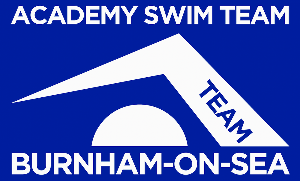Nutrition in Swimming

Many parents become concerned about what their swimmers should be eating, when they are training as hard as they are. The answer really is to make sure they eat enough to be able to train effectively and continue to grow as they should. This can be a really personal thing. The general advice is not to train on “empty” so make sure they have something before they start.
Before training
Fuel up: Eat a meal 2–3 hours before training (carb & protein & fat – low GI)
Hydrate properly: drink 200 - 300ml 2h before swimming
Suitable pre-training meals
Jacket potato with cheese, tuna or baked beans plus veg
Pasta with tomato-based sauce or pesto; cheese, tuna or chicken; plus veg
Rice with chicken, fish or beans plus veg
One pot dish with pulses, veg, lean meat or fish PLUS potatoes or pasta
Sandwich/ toast with tuna, cheese, chicken or peanut butter
If you don’t have time for a meal (e.g. early morning training), have a snack 30 min before training with 200 – 300 ml water.
Pre-training Snacks
Toast (wholegrain) with honey or jam
A banana (or other fresh fruit)
A handful of dried fruit (e.g. raisins, apricots)
A cereal bar Porridge or wholegrain breakfast cereal with milk
This can be a great way to work out what is best for them to have before a competition.
During Training
Prevent dehydration: drink plenty
Refuel (if training hard for over 1 hour)
Drink around 300 - 500 ml per hour
Drink little and often, ideally every 15 – 20 minutes
For training sessions lasting longer than 1 hour, swimmers may find that consuming additional fuel (in the form of a drink or as food), helps maintain their performance and delays fatigue.
Suitable drinks include:
Squash (diluted at least 1 to 6) - regular or 'high juice' squash or plain water
Diluted fruit juice (diluted at least 1 to 1)
Isotonic sports drinks (expensive and not really necessary!)
Mid-training snacks:
A banana
A cereal or granola bar
A handful (40 - 50g) of raisins or other dried fruit
These foods should be accompanied by a drink of water!
Avoid the following (they are too concentrated in sugars and lack useful nutrients):
Sweets Jelly cubes or jelly sweets 'Energy' tablets or glucose tablets Energy drinks
Post Training Recovery
Timing is key to optimal recovery and nutritional recovery strategies should begin within the first hour after training!
Immediate Suggestions
Re-hydrate: drink straight away (water or diluted juice)
Refuel: carb & protein snack within 30 min
500 ml milk, milk shake or flavoured milk
One banana plus a handful of nuts
2 pots (2 x 150g) of fruit yoghurt
One cereal bar plus 1 pot of fruit yoghurt
Wholemeal sandwich or toast with peanut butter or cheese
Refuel
The main fuel used during training is carbohydrate. It is important to restock your stores after training especially when recovery between sessions is less than 8 hours. Low carbohydrate stores can cause fatigue and impair power and endurance.
After intense sessions aim for 1g carbohydrate per kg body mass.
Rebuild & Repair
Eating protein immediately after training is important to help muscle growth and repair. This is especially important to ensure better adaptations to training i.e. making sure that the work put in counts!
Approximately 16-25g protein should be consumed within the first hour after exercise.
Rehydrate
Both water and salt losses need to be replaced as dehydration can negatively affect performance.
Further Reading
Sports Nutrition for Young Athletes by Anita Bean,
www.anitabean.co.uk, available from Amazon or book shops which contains more information and easy healthy recipes.



